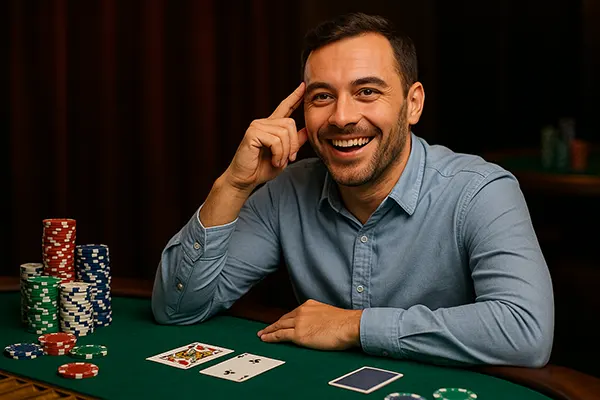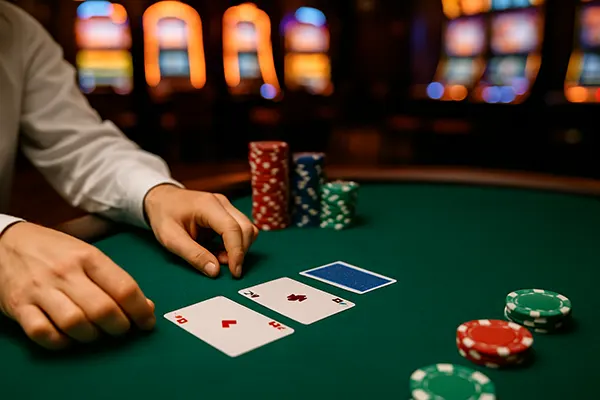The Role of Memory and Concentration in Blackjack: How to Train a Player’s Brain

Success in blackjack depends not only on understanding numbers or strategies but also on the player’s ability to remember, focus, and process information quickly. Developing mental endurance and attention can significantly affect long-term performance and decision-making accuracy at the table.
Understanding the Cognitive Demands of Blackjack
Blackjack is one of the few card games where skill and mental sharpness can influence the outcome. Unlike games of pure luck, it requires continuous concentration on card sequences, dealer actions, and betting choices. Players must memorise previous rounds to anticipate possible outcomes and adjust their decisions accordingly.
This cognitive effort activates working memory and logical reasoning, both essential for managing complex information in real time. Research in cognitive psychology shows that such mental activity strengthens neural pathways associated with problem-solving and decision-making, especially when practiced regularly.
Moreover, blackjack demands sustained attention throughout the session. Fatigue, distraction, or emotional stress can easily lead to miscalculations. Therefore, players who train their memory and focus maintain better control over impulsive decisions and are less likely to rely on luck or intuition alone.
How the Brain Processes Information During Play
During gameplay, the brain continually processes numerical and visual information. The prefrontal cortex handles reasoning and evaluation of risk, while the hippocampus manages short-term memory related to card tracking. Efficient cooperation between these regions allows a player to recall past patterns and predict probabilities.
When players experience repeated exposure to such mental challenges, they develop a form of procedural memory – a type of long-term memory linked to automatic skill execution. As a result, experienced players can calculate odds or adjust their bets with minimal effort, freeing cognitive resources for strategic thinking.
However, when concentration breaks, errors increase dramatically. Neurological studies suggest that even brief lapses in attention can reduce accuracy by up to 20%. Consistent cognitive training helps to stabilise focus and reduce the impact of external distractions.
Effective Techniques for Improving Memory
Enhancing memory for blackjack involves both mental exercises and lifestyle habits that support brain health. One of the most effective techniques is mnemonic training. By associating cards or patterns with visual symbols, players can store and retrieve complex data more easily during fast-paced games.
Regular practice of short-term recall – for example, memorising card sequences and testing recall after several minutes – strengthens the brain’s ability to process multiple inputs. Digital training tools and cognitive apps can help simulate these conditions, improving accuracy and recall time.
Additionally, maintaining a balanced diet, good sleep, and regular physical activity improves cognitive performance. The brain requires stable oxygen and glucose levels to sustain concentration, and physical fitness directly correlates with faster neural response times, essential for decision-based games like blackjack.
Real-Life Cognitive Training Methods
Many professional players use structured brain training routines, such as the dual n-back method, which enhances both memory and attention. This scientifically validated exercise challenges users to recall sequences of sounds and visuals simultaneously, mirroring the multitasking demands of blackjack.
Mind mapping is another technique, where players visualise card relationships or strategies through diagrams. It strengthens associative memory and helps internalise mathematical relationships, such as card value distribution or deck composition probabilities.
Moreover, meditation and mindfulness practices have been shown to improve sustained focus by reducing cognitive noise. Players who meditate regularly report higher awareness levels and improved emotional regulation during high-stress rounds.

Maintaining Concentration During Gameplay
Concentration is often the decisive factor between victory and loss in blackjack. The most skilled players manage to stay mentally alert for extended periods, adjusting their strategies as the game progresses. The ability to tune out background noise, emotional pressure, and fatigue is crucial.
One proven technique is the use of micro-breaks between hands. Short pauses of 30–60 seconds allow the brain to reset attention levels, preventing burnout. Players can use these moments for deep breathing, stretching, or simply reviewing previous plays mentally.
Equally important is emotional control. Impulsivity and frustration disrupt concentration and can cause players to deviate from their planned strategy. Emotional awareness training, including journalling sessions or post-game reflections, helps identify triggers that lead to poor focus or unnecessary risks.
Long-Term Benefits of Mental Discipline
Developing strong memory and concentration extends beyond blackjack. Regular cognitive exercise enhances everyday skills like planning, multitasking, and critical thinking. Studies indicate that players who engage in structured mental training often exhibit higher productivity and faster problem resolution in other areas of life.
Furthermore, consistent mental discipline contributes to stress reduction. Players with trained focus show lower cortisol levels, meaning they recover faster from tense situations and maintain a clear head under pressure. This resilience is particularly valuable in professional gaming environments.
Ultimately, mental fitness is the cornerstone of blackjack mastery. By combining memory enhancement, concentration techniques, and emotional regulation, players not only improve their chances of success but also develop cognitive agility that benefits them far beyond the gaming table.
